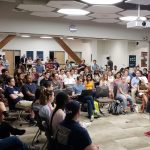Crafted for boards engaging in strategic planning, this seminar places contemporary issues in American higher education in their historical and philosophical context.
Topics include:
• History of Higher Education: Examines the history of higher education in the United States, its European models, and its foundational vision, including the views of the Founders, the rise of land-grant and research institutions in the 19th century, expansion after World War II, and higher education’s changing role in American society.
• The Basics of the Higher Education Act: Offers an overview of the Higher Education Act of 1965 and its subsequent reauthorizations, especially how it has shaped the higher education landscape since its passage.
• The History and Function of Accreditation: Examines accreditation, including how it came to be what it is, how it affects institutional budgets, how it works, and ideas for reform that create more efficient, cost-effective quality control.
• Current Issues and Trends: Discusses current hot topics in higher education, including legislative actions at the state and federal level and policy actions by the Department of Education.








